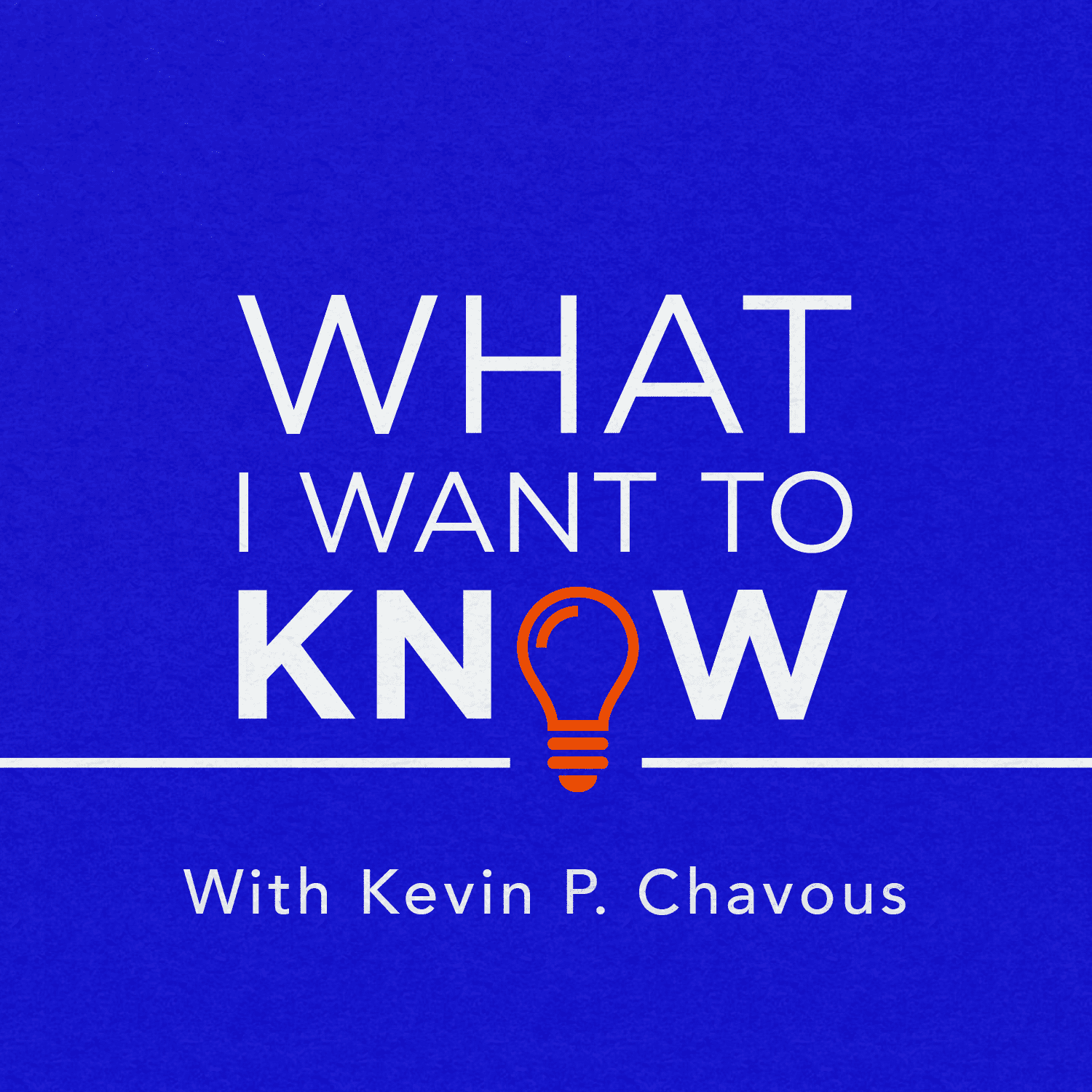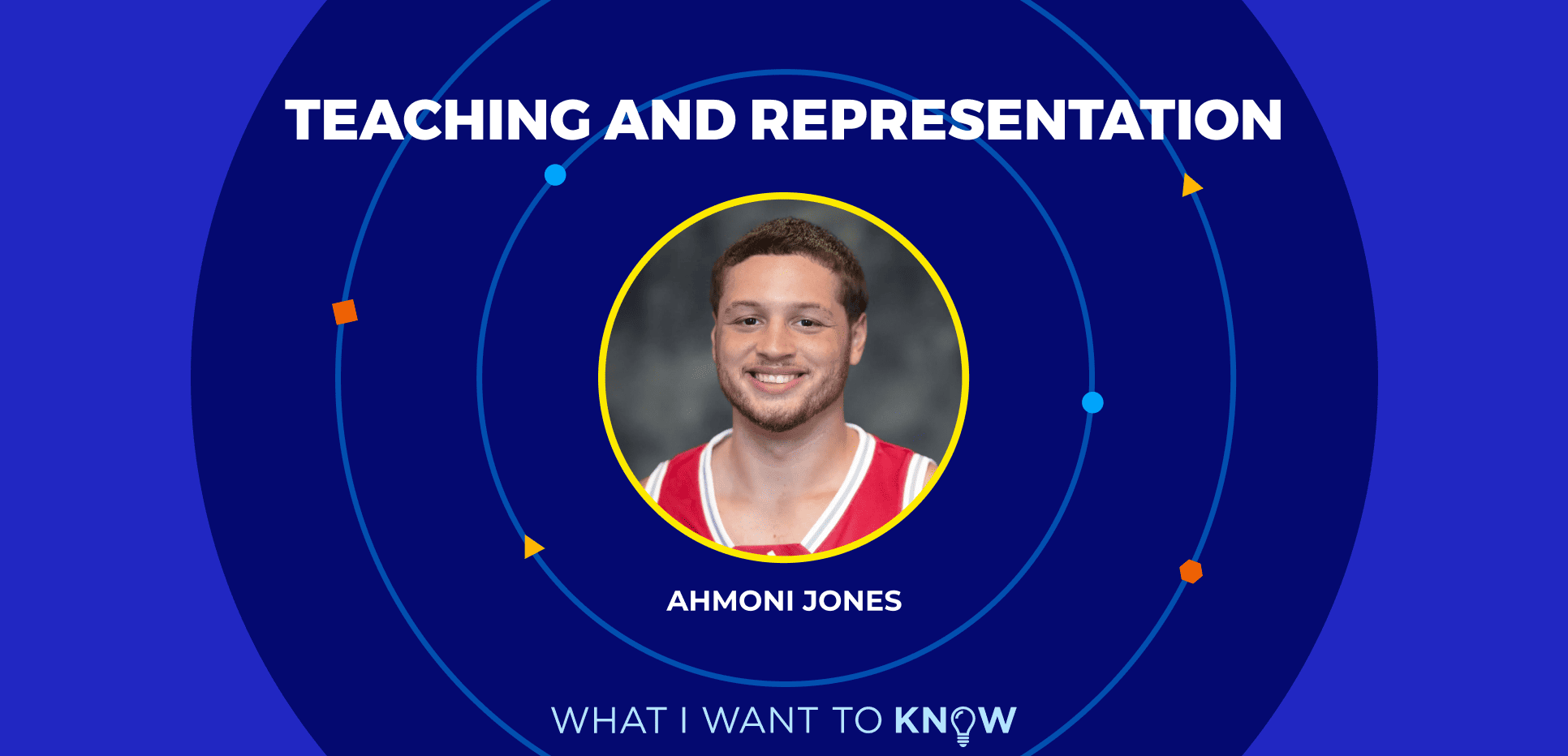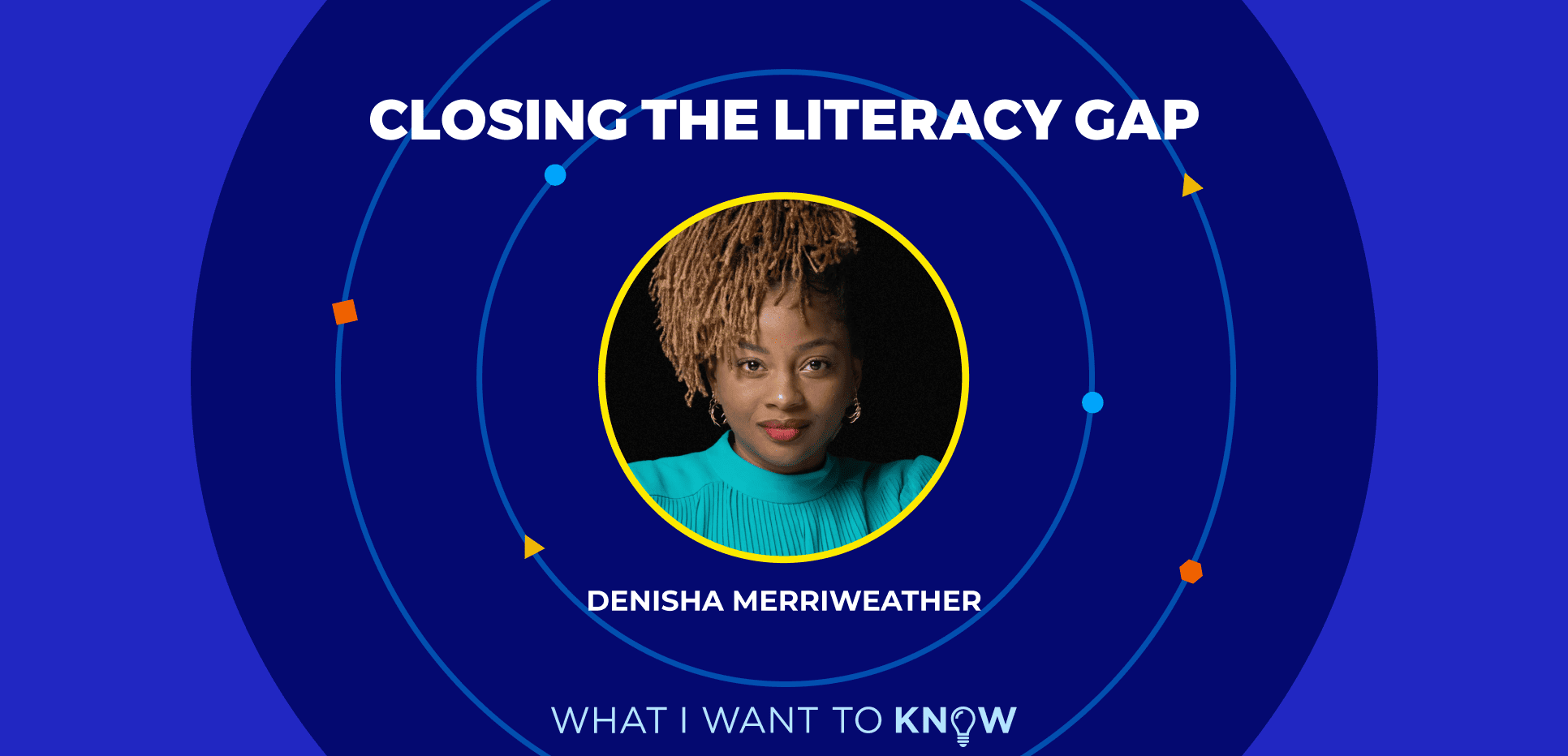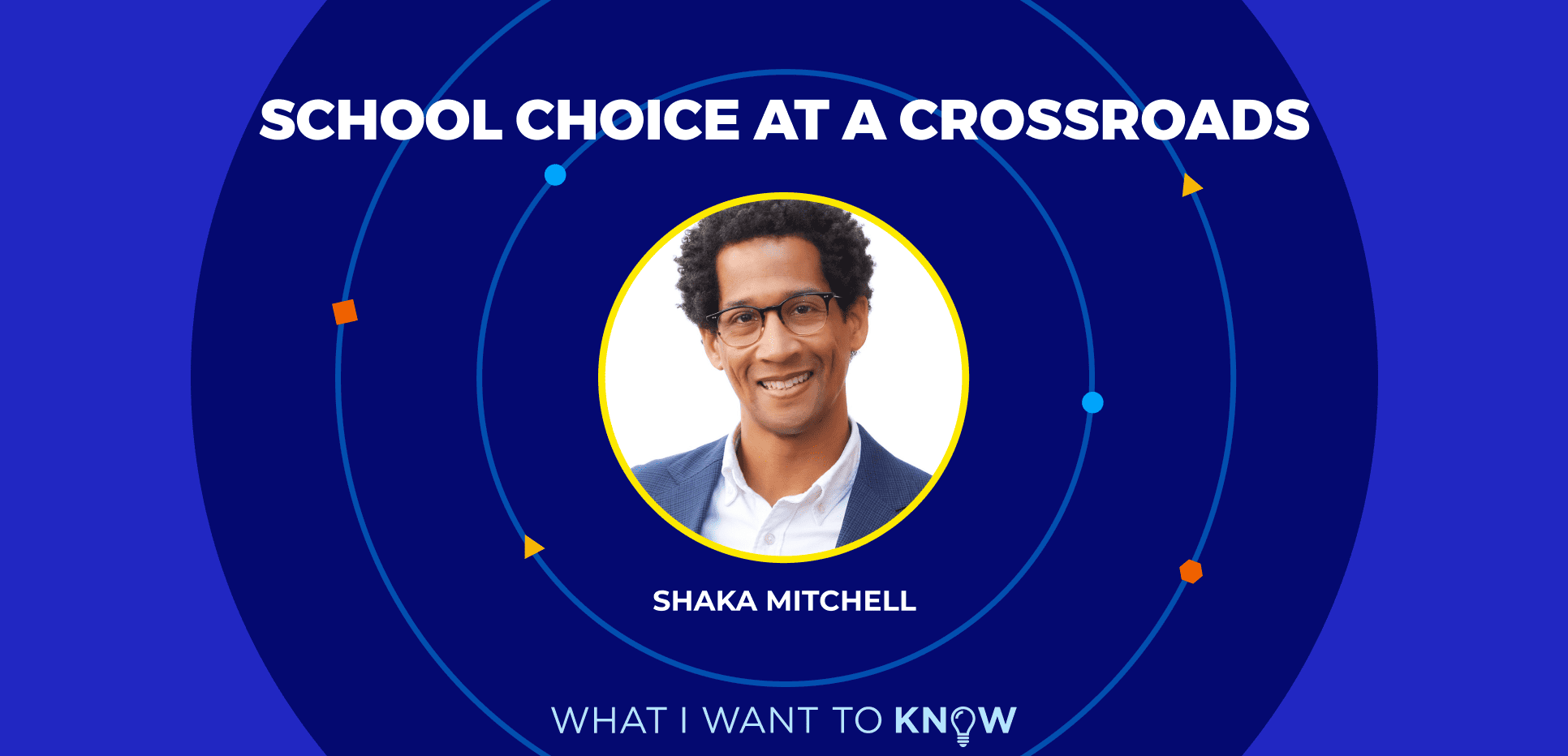There are nearly 8,000 public charter schools in the United States, serving 3.5 million students. But parents, teachers, and thought leaders have a range of views on their role in public education.
What are some unique challenges administrators face today when establishing and managing a charter school? Do charter schools spark innovation and improvement in the school system at large or draw resources away from traditional public schools? And how much is the general sentiment regarding charter schools based on the politics of the day?
This week, Ian Rowe joins Kevin to discuss the purpose and importance of charter schools.
Listen to the Full Audio
Listen on: Apple Podcast, Spotify
Transcript
Kevin: There are nearly 8,000 public charter schools in the United States serving three and a half million students. But parents, teachers, and thought leaders have a range of views on their role in public education. What are some of the unique challenges administrators face today when establishing and managing a charter school? Do charter schools spark innovation and improvement in the school system at large, or draw resources away from traditional public schools? Oh, and how much is the public sentiment regarding charter schools based on the politics of the day?
Kevin: This is What I Want to Know. Today, I’m joined by Ian Rowe to find out. Ian Rowe is a senior fellow at the American Enterprise Institute, where he focuses on education and upward mobility, adoption and family formation. He has held leadership positions at Teach For America, the Bill and Melinda Gates Foundation, the White House, and MTV, where he received two Emmy Awards for his work in public service. Ian was the founder and CEO of two different charter school networks in New York City, where he grew up.
His mission in life is to help students of all backgrounds achieve their goals, and he explores this in his new book, “Agency.” Today, Ian is here to discuss the role charter schools play in the education system and how we can help all students succeed. Ian, welcome to the show.
Ian: I am so excited to be here with the legendary Kevin P. Chavous. No, I’m really excited.
Kevin: Well, I mean, it’s like that expression: you had me at hello; you’re talking legendary stuff. A lot to unpack. I want to talk about your new book. I want to talk about your work with charter schools, but I always like talking about the beginning, because you are a New York City boy from the very beginning. Which borough?
Ian: From the very, very beginning, I was actually born in London to Jamaican parents. When we came to the United States when I was five, we moved to Wyona Street in Brooklyn. That was the beginning of my New York City life. We lived in Brooklyn for a few years, and then my parents moved on up to Queens.
Kevin: I was going to say Queens. But that area in Brooklyn, I know that area. I mean, that’s changed.
Ian: Flatbush. It’s Flatbush.
Kevin: It’s totally changed. With that background, folks from Jamaica, born in London, living in New York City, did you have any idea that your career trajectory would end up doing what it did, because you’ve had a really, really interesting career path? Where did that all come from?
Ian: First of all, no, I would not have predicted many, many, many years ago that I’d be writing schools and writing books and doing the things that I am doing. That said, when I was growing up, for my parents, education was everything. I’m a K to 12 New York City kid. All of my public schooling was in the city. To be completely honest, my parents were not that happy with what they saw happening with other young Black men in Brooklyn and other parts.
My existence was like this: you go to school, you come home, you do your homework, you have dinner, you go to bed, you go to school, you come home, you do your homework. Education was drummed into us as the common pathway. We weren’t wealthy. I wasn’t going to private school. There were programs in New York City, some called IG and SP. SP stood for special progress. I got into that track. I went to Brooklyn Tech High School. I did grades 7, 8, 9 in two years. I skipped a grade, and entered high school at 10th grade in Brooklyn Tech, which is one of the specialized high schools in the city.
I started college at 16. I was at Cornell College of Engineering. Education was always really, really important to me. But it wasn’t until a few years later that I was mentoring at the elementary school that I went to and a couple of other schools, and I was just interacting with all these kids who were amazing, but because of an accident maybe of their zip code or their family structure, they were just not going to have the same opportunities that I had access to.
Kevin: You know what’s interesting, Ian, in hearing you talk, I’m struck by something you said. I make the same reference, and that is accident of birth, accident of zip code. So many children, through no fault of their own, but based on those accidents that are presented to them from the time they enter this world, it means everything. Similar to you, my trajectory came — I was on the D.C. Council and really wasn’t focused on education. My trajectory changed when I interacted with young men who were in the D.C. prison system.
I talked to them, spent time with them, and realized how smart, how bright, how curious many of them were. And then, hearing their stories, that consistent strand was there. They did not necessarily have the support at home, and they certainly did not have the support of the school system that marginalized them and categorized them and stigmatized them in many ways. I feel tremendously fortunate, like you, to have also had both parents at home sitting on me, making sure I did the right thing.
But the question for you is, going forward, especially where things are now, and we’re going to talk a little bit about your book, how can we make sure we provide that support when the numbers of children, particularly Black and brown boys, with challenges seem to be growing and at best stagnated? It hasn’t gotten better.
Ian: There’s a lot of obsession with failure and all the barriers that exist. But in any study, if you’re trying to understand how to replicate upward mobility, you don’t always obsess over poverty or people who are not making it. Well, for those kids and those young people who’ve entered young adulthood on a different positive trajectory, what made the difference? In my observations, now running charter schools for close to 15 years and working in communities, there have typically been four things that have typically differentiated a young person who’s been born into challenging circumstances and yet are rising in ways different than their peer group.
The first is the family that they were from. Regardless of the challenges where they came from, a domestic household with violence, single parenthood, the family they formed was very different. Typically, as they entered young adulthood, they were on their pathway to creating a much stronger family, typically a married two-parent household. That doesn’t mean that any other household won’t potentially be successful, but in my observation, the young people who change their trajectory, their decisions around the timing of family formation and the type of family that they formed was the fundamental first big decision.
The second observation I’ve seen is that these young people typically had some kind of personal faith commitment. Didn’t matter if they’re Muslim, Christian, whatever; it’s just that they live by a moral code. They were part of a community with people that loved them, that respected them, that were there for them, that had their back. They were part of these weekly rituals where they’re seeing people almost like you had to live up to this new set of expectations of people that you are now part of.
The third element I observed is that typically young people who have been successful benefited from some kind of educational freedom or school choice, whether that be a charter school or their parents scrounged for them to go to a really good private school, or they went to a suburban school, but somehow the school. They had a great education. Typically, they formed a strong family. They had a personal faith commitment. They benefited from educational freedom. The last piece was that they usually had some kind of entrepreneurial mindset, that they were problem solvers in their own life, right?
It didn’t necessarily mean that they had to start their own company. They worked, but somehow they didn’t feel they were so disempowered that they couldn’t find a way for their own life. No doubt if they formed a strong family, had a personal faith commitment, and had benefited from a strong education, those three elements are probably what undergirded this entrepreneurial spirit. That’s why I spend so much time talking about: how do you cultivate agency? How do you replicate these four forces in the lives of young people to change the trajectory that they’re on?
Kevin: Now, a lot of this, obviously, you talk about in your book. What was the inspiration behind “Agency?” What led you to go through that process? I’ve been there, having written a handful of books myself, but there’s always something that motivates you to say, “I need to put pen to paper,” and something beyond an op-ed.
Ian: Oh yeah, yeah. What’s interesting is, like many of us in the world of education, I run schools because I want our students to know that they can do hard things. That life is not easy, all the platitudes, but it’ll be worth it on the other side. But I increasingly found as I’ve been running schools and just the larger narratives that are emerging in our country are that there are narratives right now that are telling young people, particularly if you’re a certain ethnic background or from an economic background, the message you’re getting is not that you can do hard things, but all the things that you cannot do because of circumstance.
I write about in the book what I call the “blame the system” narrative and the “blame the victim” narrative. The blame the system narrative and this is why I wrote the book the blame the system narrative is very prevalent, and that’s basically a view of the United States as this oppressive nation. If you are of a certain skin color, if you’re of a certain class, if you’re a certain gender, the system is rigged against you. Capitalism is evil, or there’s a white supremacist lurking on every corner. You are basically at the mercy of these larger forces that are so powerful that you are powerless to overcome them.
Obviously, that’s a message that robs you of any kind of agency or sense of self-determination. But on the other side, there’s what I call blame the victim. That’s an ideology that says America is great. America is the land of opportunity. If you are unsuccessful, it’s because you didn’t pull yourself up by your own bootstraps. You didn’t take advantage of the opportunity. You and I both know if a seven-year-old kid is born into a struggling family without access to school choice, and they’re not part of a faith community, it’s really hard for that kid to pull himself up by their bootstraps.
These dual narratives of blame the system and blame the victim add up to a singular lie that is robbing our young people of the ability to see their own future, to be the architect of their own life. I felt I needed to not just shout in the rain; what’s the empowering alternative? And that’s why I decided to write “Agency.”
Kevin: What I know, and I happen to be a Democrat, but I know that many of my Democratic colleagues rail against my support of school choice and of charter schools. I always say to them: I am still the same person, and I care about our kids in the community like you do. What are we doing to help all kids now? It is providing some options that otherwise wouldn’t benefit them. But the politics are so crazy now that, as you said, if you are not across the board in lockstep with every item on that checklist, then it’s almost like you can’t have conversations.
Ian: Well, that’s where we find ourselves. I mean, when you ask about the political situation of charter schools, let’s just linger on New York just for a second. Governor Hochul, who just took office, just a few days ago released her initial proposal, the initial budget for next year, and one of her key provisions — Remember that cap that I just said exists? The opposition to this is incredible, but she has proposed — In New York State, in the entire state, there are 460 available charter schools or charters to be licensed. But for several years, there’s been a regional distribution, meaning that New York City has reached its limit, but the rest of the state has access to hundreds of charters.
She said, well, let’s just remove the regional cap. Because if there’s an entrepreneur in Buffalo, that person should be able to apply for a charter. Literally the day after Governor Hochul proposed this elimination of the cap, the leading Democratic officials in New York held a press conference to say, “No, no, no, do not do this,” against the wishes of their own constituents. Because each one of these leaders represents communities, particularly in low-income areas, where thousands and thousands and thousands of low-income, primarily Black and Hispanic and increasingly Asian families all they want is a shot at the American Dream. The politics are tough. The politics are tough.
The teachers’ union obviously plays a role in all this. I mean, we just opened Vertex Partnership Academies, this great new high school in the Bronx. The teachers’ union sued us to shut us down even before we opened. Thankfully, a New York State Supreme Court judge completely dismissed their case. But it just gives you a sense that even when you’re trying to do the right thing, even when you’re trying to create great new charter schools, the level of opposition is significantly high. But guess what? We have agency too. We are resilient. We figured out a way.
Kevin: Let me ask you this on that topic: there are a lot of myths about the charter school movement. I always have to start off by saying they are public schools because many people still want to say that they’re private schools. And then there’s this belief by some that they take money away from the traditional system. Talk about the benefit of charter schools as it relates to the whole educational establishment at large.
Ian: Thank you for asking that because I do think it’s important to clarify because we cannot make the assumption that everyone knows where charter schools are. You just said something extremely important, and I should probably always add the prefix. Charter schools are public schools. They are public charter schools. The distinction is usually a public district school, but we’re all kids with public school students funded by public dollars. The only difference with charter schools is that they’re typically privately run nonprofits, like I’m the CEO of Vertex Partnership Academies, which is a nonprofit organization that runs our International Baccalaureate High School in the Bronx.
Charter schools, fundamentally, when we were first created as a sector 25, 30 years ago, were to essentially create positive alternatives within the public school system. Yes, there are some for-profit charter schools in Michigan, but there are very, very few. And in New York state, they’re banned. You can only have nonprofit public charter schools. The fundamental offering is to a parent, because a parent at the end of the day doesn’t actually care about public charter schools. They don’t care. They just want a good school. They just want a good school for their kids, especially in communities where only 7% of kids are graduating from high school ready for college.
The other distinction of charter schools is that we’re typically not unionized. Guess what? We have to compete for talent. We have to pay well. We have to have strong professional development. We have to treat our teachers like the professionals that they are, and compete. Well, unfortunately, the teachers’ union doesn’t really like that structure, and so our growth is a threat to the status quo. Fundamentally, public charter schools are part of an ecostructure that facilitates the idea of more educational freedom and more school choice.
Kevin: Ian, I have one last question, and it relates to that. When we think about the future of education, most education policy folks, educators, recognize that the future really centers around some form of personalized learning. That we’ve got to move out of this traditional warehousing of children.
But at some point in time, we’ve got to meet kids where they are and engage in problem solving, team building, collaboration, focus more on school-to-career opportunities, give kids more control over their own educational journey, and pull away from the stand and deliver teacher lecture format where the teacher in the future probably plays more of a role of a guide as opposed to a content deliverer, since you can Google and get all the content you want.
You know that. Your schools embody this notion of empowering students in their educational journey. How do you see the progression of charter schools in helping us get there? Because there are many traditional schools that are there, but far too many traditional schools are kind of locked in what we’ve always known. How do you see us breaking through to this empowerment notion for students in a way that benefits everyone?
Ian: I have an interesting take on this question, and it’s partly because I’ve now run networks pre-K through 12. I have a different perspective on what happens pre-K through eight versus grades 9 through 12. For example, Vertex Partnership Academies is this new International Baccalaureate High School that we’ve just created in the Bronx, and it’s a world-class curriculum, but what’ll be interesting for our students is that at the end of 10th grade they will be able to choose either what’s called the IB diploma pathway or the IB careers pathway. In the diploma pathway, that means your junior and senior years are very focused on a college-ready pathway.
At the end of that, you will be able to thrive at any college or university in the world because it’s an international baccalaureate model. But if you choose the careers pathway, you’ll still take rigorous classes, and you will have the opportunity to do apprenticeships in industry. Imagine one day a week during your junior and senior year you could work in the computer science area at Google or learn networking at Cisco or study phlebotomy with the Mayo Clinic at a New York City based hospital with the intent of you actually earning a credential with labor market value in a particular industry.
If, at the end of high school, you want to go directly into the workplace, you have that option. At the high school level, I fundamentally believe the next frontier is more optionality, particularly with college and career pathways embedded in high school. More optionality, more flexibility, to your point, more personalized decision making about what path students want in high school. But you know what? In elementary and middle school, I have come to believe that there has to be a foundation that every kid learns. I feel our elementary and middle schools have drifted away from this idea of a common body of knowledge or a core body of knowledge.
I think I would spend a lot more time in elementary and middle school strengthening that foundation of literature, of science, things that everyone should know as the foundation for being able to create more flexibility at the high school.
Kevin: I absolutely agree with that. I think that makes a lot of sense. One of those core knowledge areas of focus, as you know, in elementary and middle school is just reading. Because for so many kids, if they don’t get that, then this idea of taking ownership of their educational journey it’s just not going to happen. I think that makes absolute sense. Ian Rowe, it’s been a pleasure. Thank you so much for joining us on What I Want to Know.
Ian: Kevin, this was outstanding. Thank you very much for having me on.
Kevin: Thanks for listening to What I Want to Know. Be sure to follow and subscribe to the show on Apple Podcasts, Spotify, or your favorite podcast app so you can explore other episodes and dive into our discussions on the future of education. Write a review of the show. I also encourage you to join the conversation and let me know what you want to know using #WIWTK on social media. That’s #WIWTK. For more information on Stride and online education, visit stridelearning.com. I’m your host, Kevin P. Chavous. Thank you for joining What I Want to Know.
Meet Ian
Ian Rowe is a senior fellow at the American Enterprise Institute, where he focuses on education and upward mobility, adoption, and family formation.
He has worked in a wide variety of high-profile roles in his career, including at the White House, the Bill & Melinda Gates Foundation, and MTV—where he received two Emmy Awards for his work on youth awareness campaigns.
Ian was the founder and CEO of two different charter school networks in New York City, where he grew up. His mission in life is to help students of all backgrounds achieve their goals, and he explores this in his new book, Agency.






